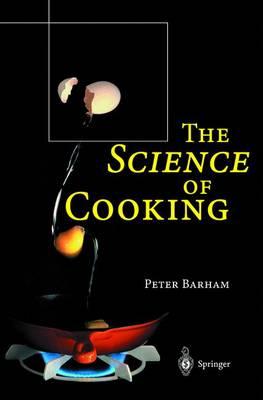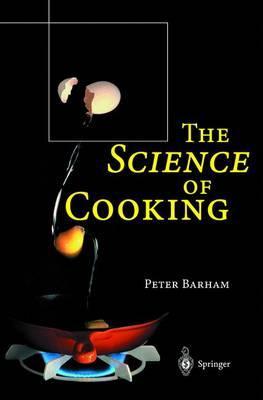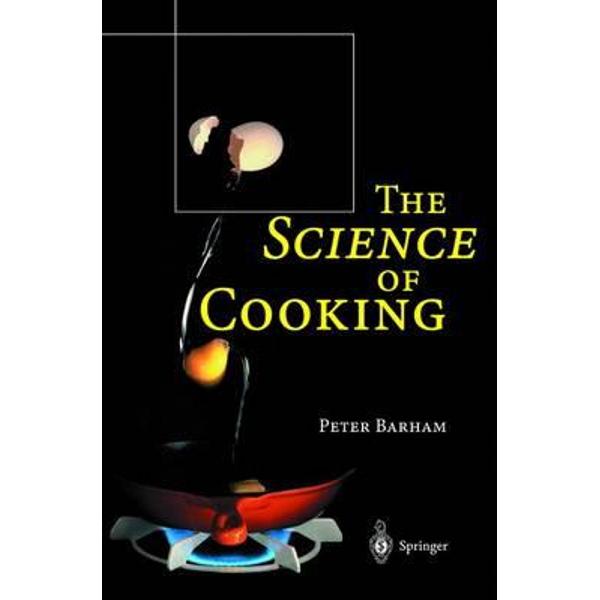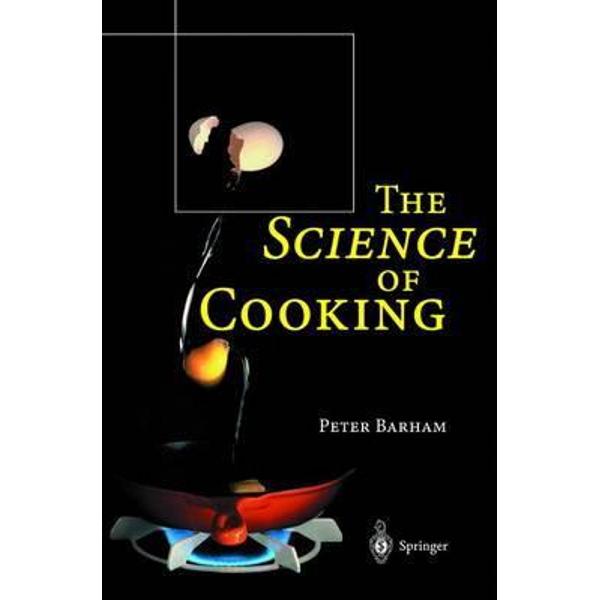Science of Cooking
Science of Cooking
Strong praise from the reviewers -
"Will be stimulating for amateur cooks with an interest in following recipes and understanding how they work. They will find anecdotes and, sprinkled throughout the book, scientific points of information... The book is a pleasant read and is an invitation to become better acquainted with the science of cooking." - NATURE
"This year, at last, we have a book which shows how a practical understanding of physics and chemistry can improve culinary performance... [Barham] first explains, in a lucid non-textbooky way, the principles behind taste, flavour and the main methods of food preparation, and then gives fool-proof basic recipes for dishes from roast leg of lab to chocolate souffle." - FINANCIAL TIMES WEEKEND
"This book is full of interesting and relevant facts that clarify the techniques of cooking that lead to the texture, taste and aroma of good cuisine. As a physicist the author introduces the importance of models in preparing food, and their modification as a result of testing (tasting)."- THE PHYSICIST
"Focuses quite specifically on the physics and food chemistry of practical domestic cooking in terms of real recipes... Each chapter starts with an overview of the scientific issues relevant to that food group, e.g. toughness of meat, thickening of sauces, collapse of sponge cakes and souffles. This is followed by actual recipes, with the purpose behind each ingredient and technique explained, and each recipe followed by a table describing some common probl
PRP: 611.92 Lei
Acesta este Prețul Recomandat de Producător. Prețul de vânzare al produsului este afișat mai jos.
550.73Lei
550.73Lei
611.92 LeiIndisponibil
Descrierea produsului
Strong praise from the reviewers -
"Will be stimulating for amateur cooks with an interest in following recipes and understanding how they work. They will find anecdotes and, sprinkled throughout the book, scientific points of information... The book is a pleasant read and is an invitation to become better acquainted with the science of cooking." - NATURE
"This year, at last, we have a book which shows how a practical understanding of physics and chemistry can improve culinary performance... [Barham] first explains, in a lucid non-textbooky way, the principles behind taste, flavour and the main methods of food preparation, and then gives fool-proof basic recipes for dishes from roast leg of lab to chocolate souffle." - FINANCIAL TIMES WEEKEND
"This book is full of interesting and relevant facts that clarify the techniques of cooking that lead to the texture, taste and aroma of good cuisine. As a physicist the author introduces the importance of models in preparing food, and their modification as a result of testing (tasting)."- THE PHYSICIST
"Focuses quite specifically on the physics and food chemistry of practical domestic cooking in terms of real recipes... Each chapter starts with an overview of the scientific issues relevant to that food group, e.g. toughness of meat, thickening of sauces, collapse of sponge cakes and souffles. This is followed by actual recipes, with the purpose behind each ingredient and technique explained, and each recipe followed by a table describing some common probl
Detaliile produsului















